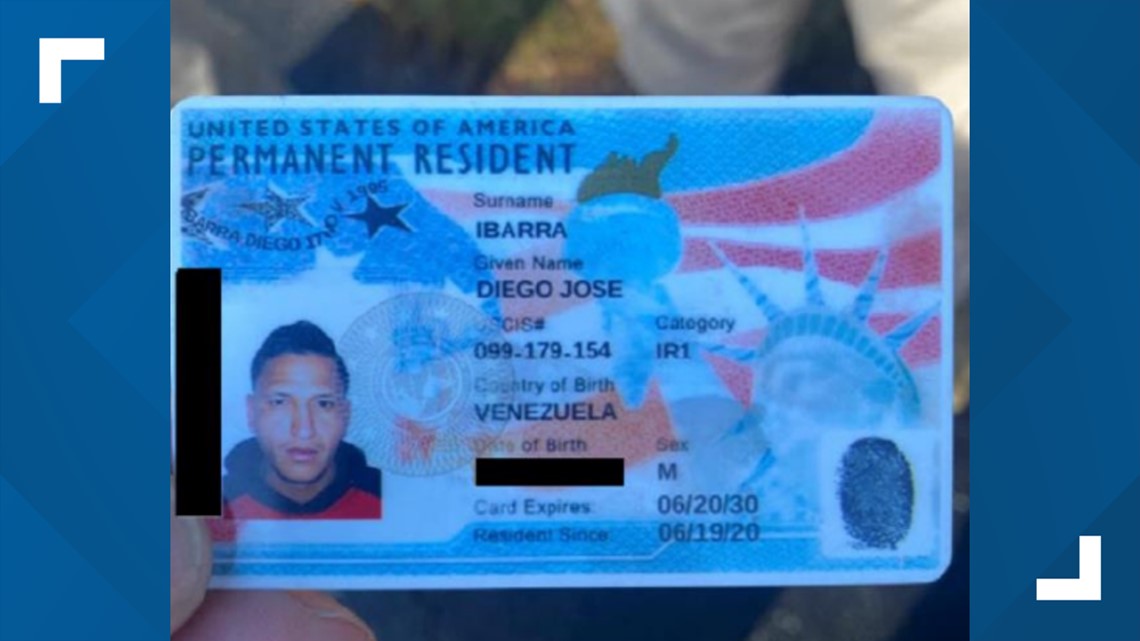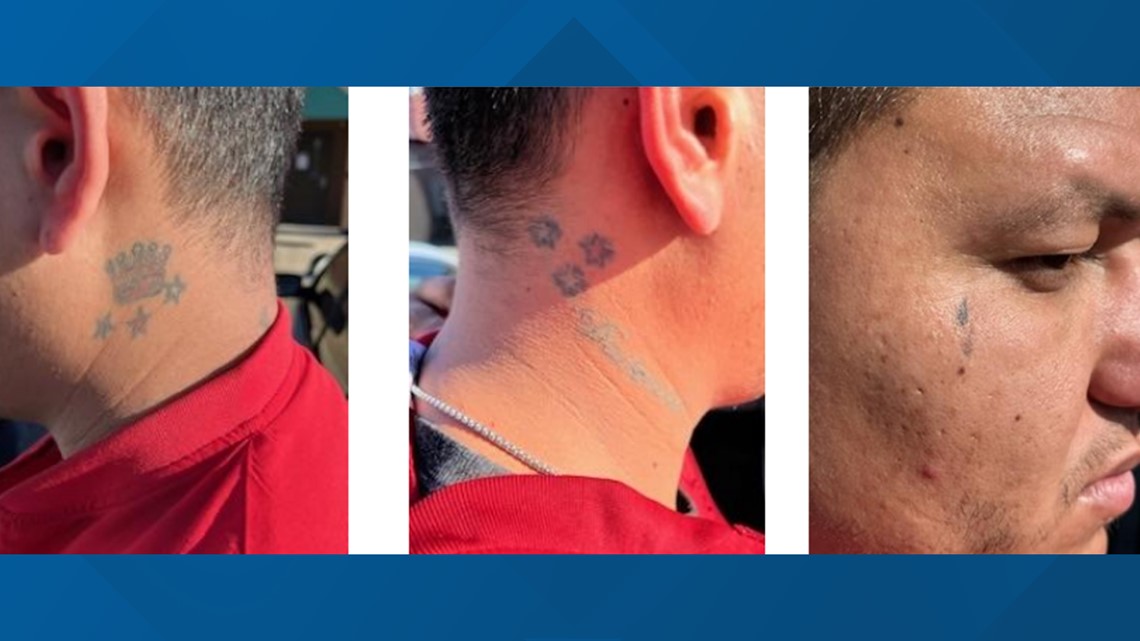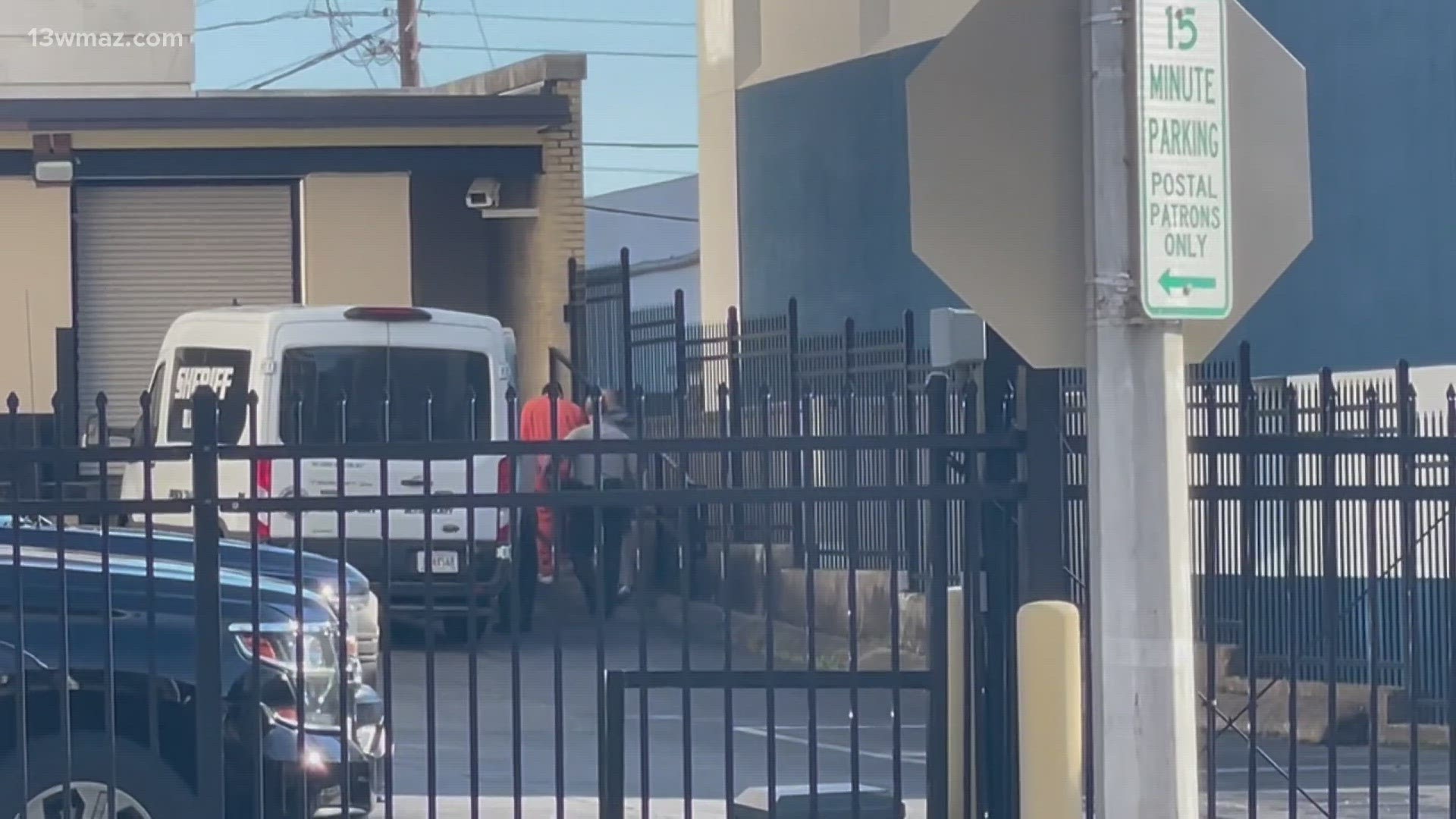MACON, Ga. — The brother of the suspect in the killing of 22-year-old Laken Riley was denied bond in a federal court appearance Thursday morning after the judge agreed with federal prosecutors that he posed too much of a flight risk.
Diego Ibarra, whose brother Jose is accused of killing the Augusta University nursing student on UGA's campus, appeared before U.S. Magistrate Judge Charles Weigle.
It comes only a few days after Ibarra first appeared before Weigle in federal court on Monday.
While the investigation into his brother pushed ahead, Athens police stopped Ibarra because he matched the description of his brother, who allegedly killed Riley while she was on a run. As they questioned him, Ibarra presented what authorities argue is a fake green card.
Ibarra was in the country illegally after crossing the border in 2023. He articulated a "credible fear" if he were to return to his home country of Venezuela, so he was released as part of the Alternative to Detention program as his immigration case went through the system.
"We have a defendant with a long history of crossing into the U.S. illegally and then, when he’s here, showing absolute disregard for the laws of this country,” Assistant U.S. Attorney Mike Morrison said during the hearing.
Ibarra was charged with possession of a fraudulent document – a felony – which carries up to 10 years in prison and a $250,000 fine, according to the U.S. Attorney's Office for the Middle District of Georgia.
A special agent with the Department of Homeland Security, Bennie Bryant Jr., testified in the hearing, outlining Ibarra's past run-ins with immigration authorities and law enforcement to how they were able to determine that the green card was fake.
“There are a lot of different indicators,” Bryant testified. “Some of the security features were off, there were two different date of births on the card."


He also noted that the Department of Homeland Security has a support center where they can call to verify if a green card is authentic. When they called, they said the "card did not exist."
"So at that time, we knew it to be fraudulent," Bryant testified.
The core of the hearing, however, was centered on whether or not Ibarra posed a flight risk were Judge Weigle to grant bond in this case.
The case for keeping Ibarra in jail was outlined in a Wednesday evening court filing.
Prosecutors outlined Ibarra’s history with immigration authorities and previous arrests. They note his three arrests in Athens, his possible gang affiliation and Ibarra cutting off a court-ordered ankle monitor and leaving it on the side of the road in Colorado.
Only 14 days after getting the monitor as part of the "Alternative to Detention" program, Bryant with the Homeland Security Department said they listed Ibarra as an "absconder" for cutting the ankle monitor off.
Prosecutors pointed to that and another case of Ibarra not showing up to court in Athens on a DUI charge as reasons why he shouldn't be released.
“Judge, I cannot think of a case where a defendant is a greater flight risk than Diego Ibarra,” Morrison said.
Ibarra's public defender, Chauntilia Adaway, attempted to cast doubt on the ankle monitor incident, arguing that there was not enough evidence to prove that it had ever happened.
“There is no evidence to support that Mr. Ibarra has a passport or anywhere to go and we would submit to the court that the government has not met its burden of proof showing he is a serious flight risk,” Adaway said.
Adaway outlined some possible conditions of release such as curfews or an ankle monitor, but federal prosecutors pointed back to Ibarra allegedly cutting off his ankle monitor as why that would not work.
"If this court were to impose a curfew or any other restriction, the government believes he would treat that like the condition of the ankle monitor found on the side of the road in Littleton, Colorado,“ Morrison said.
After going through the "bond formula" as prescribed by federal law, Judge Weigle eventually concluded there was enough evidence that Ibarra posed a flight risk.
“I will say it is not my concern that Mr. Ibarra will go back to Venezuela, but my concern is he might go to Idaho or Washington state... make another fake green card and it be years and years and years until we find him again,” Weigle said.
Weigle noted that the most "restrictive" measure he would typically impose on a person out on bond is an ankle monitor.
"The conditions I would typically impose in this case have already been tried – and failed,” he said.
Because of that, Weigle ruled that Ibarra had to remain behind bars as he awaits trial.
While there had been some knowledge of Ibarra's previous run-ins with the law – including a DUI, a shoplifting charge and failing to appear in court – the court documents filed Wednesday offered new details about Ibarra’s possible involvement with the "Tren de Aragua" gang, also known as the TdA gang.
They shared photos of Ibarra flashing gang signs, him waving around guns and tattoos prosecutors say are typical of TdA members.


While that evidence was presented during the hearing, Weigle did not dwell on it. Instead, he focused on Ibarra's history of failing to appear and cutting off his ankle monitor, which gave him all he needed to rule against his release.
Prosecutors note that Ibarra's case will go before a federal grand jury on Tuesday that will have to determine whether there is enough evidence Ibarra likely committed a crime, a lower bar than the "beyond a reasonable doubt" standard prosecutors will have to prove in the actual trial.
However, if they choose not to indict, then Ibarra's case will be dismissed.

